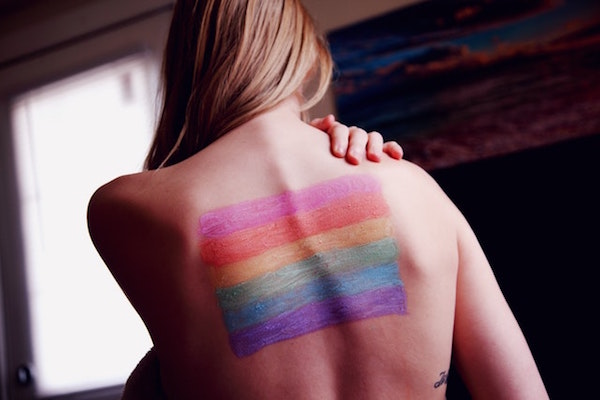Many of our journeys to queer self-actualization are far from linear. There are twists and turns that are both exciting and scary. There are bumps in the road that are often painful and frustrating. But once we land in a place where we are comfortable with who we are, we can look back and realize it was worth the ride.
Whether we come out as one identity that later develops into another, or whether we choose to come out as anything at all, what we discover about ourselves in the process is vital.
Unfortunately, those around us are not always on board with the road we take. While this journey teaches us that we should put more value in what we think of ourselves than what others think of us, it isn’t always easy to shake off other people’s perceptions. When speculation comes from close family and friends, it is difficult to dismiss these questions as insignificant. It’s even harder when the questioning comes from those we choose as partners. Instead of recognizing it as their own insecurity, we allow them to put us in a position to have to defend who we are.
The way that queer identity labels have evolved in the LGBTQIA+ lexicon is similar to the way many of our individual queer identities develop. For me, before I came out, I primarily dated men, and I hid my queerness from most people. So, when I did come out, I came out as bisexual because I didn’t hit all the lesbian markers as perfectly as I wished I did. I feared that others would question the validity of my gayness.
After a time living under this bisexual identity and realizing that it wasn’t a good fit for me, I finally settled on calling myself queer. But before this decision, I was shamed by partners for identifying as bisexual and admonished by some family members for choosing to no longer date men. These experiences hurt me because, at the time, I hadn’t learned the lesson that my queer identity is mine to define and it is my choice whether I want to define it at all.
Each person’s sexual identity and orientation are personal to them and, for some, a label does not define who they are, but for others, it does. This is especially important to remember if, like me, you begin dating a person who is a different gender or sexual identity than you have dated in the past. Your friends and family may expect you to justify this and you may not have all the answers. But that’s okay – you don’t have to have the answers. No matter who you date at any given time, you don’t owe anyone an explanation about your sexual or romantic identity.
Even if it’s your partner that questions your identity, your sexuality is still yours to define. Of course, it’s great to discuss with your partner your sexual and romantic history when you’re both comfortable doing so. But any negative judgment or speculation about your identity from your partner is inappropriate and you don’t have to take it.
Sexuality is a spectrum, sometimes an ongoing discovery, and different for each of us. Because of this, who you are now may not be static throughout your life. People who don’t understand this and question another person’s sexual identity cause harm to that person by invalidating who they are. This attitude is indicative of homophobia, biphobia, and transphobia, among other prejudices – even when it comes from those in the queer community. For example, the notion of the “gold-star lesbian”, a title that places higher social value on a lesbian who has never slept with a man, undermines the varied experiences of those who identify as lesbian. Also, the idea that bisexuality is just a path to being gay is an incorrect oversimplification of some queer people’s experiences.
Taking ownership of your queer identity allows you to exercise autonomy over your body, the way you present your identity, and your emotional development. As queer people, there are so many ways we are expected to give up our autonomy and the very least we can do for ourselves is own who we are. This will lead to greater self-acceptance and help combat the shame that others try to project onto us for having different experiences than they’ve had.
The judgments I faced during the process of exploring who I was led me to question my identity in ways I might not have. If I’d embraced myself in a more comprehensive way, I would have avoided some of the obstacles I experienced. I now know that once you accept yourself, it’s easier to reject questioning from others.
You can demand the respect you deserve because you’ve built up your confidence in knowing who you are and you understand it’s okay that who you are is ever-evolving. As queer people, we have earned the right to live on our own terms, regardless of anyone else’s opinions about who we are.

